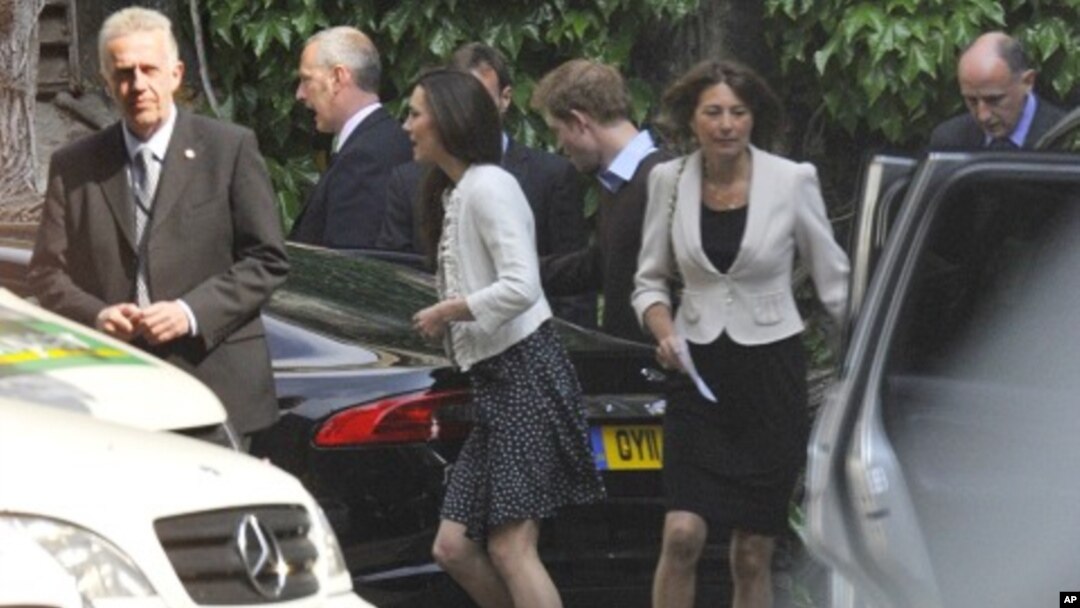Excitement is building in London ahead of Friday's royal wedding when Prince William and Kate Middleton tie the knot at Westminster Abbey. Britain hopes the event will bring in billions of dollars and showcase the country to the world. But with the day declared a public holiday, some businesses fear the wedding could end up costing them revenue.
Main attraction
At times it feels like the royal wedding has brought the entire world to London.
The city’s top sights are packed. TV crews from countries across the globe are competing for coverage. The number one attraction for all: Westminster Abbey, where Prince William and Kate Middleton will walk up the aisle on Friday.
An extra 600,000 tourists are expected to arrive in London to try to get a peak of the royal couple.
All this adds up to an economic boon for Britain, says Mark Di-Toro of the government tourism department, VisitBritain.
"The monarchy every year brings in 500 million pounds [$830 million] to the economy," Di-Toro explained. "That’s a subsector of the culture and heritage which is one of our big selling points of Britain which brings in 4.6 billion pounds [$7.6 billion]. But for the actual day itself, those one million tourists, the number that are going to be in London for the day, should bring in anything up to about 50 million pounds [$82 million] in tourism spend."
Economic windfall?
The government claims the royal wedding will trigger the start of a $3.3 billion windfall for Britain, taking in the queen’s Diamond Jubilee later this year and the Olympics in 2012. That is a much-needed boost for a faltering economy.
But not everyone agrees. The wedding day has been declared a public holiday -- and with Easter the previous weekend, and another holiday the following week, many Brits have deserted their jobs to go on vacation.
That could cost companies some income, says Holly Conway of the Federation of Small Businesses.
"Whenever there’s a public holiday, there is a cost to the economy of about 6 billion pounds [$10 billion] in terms of lost revenue," Conway said. "So having two public holidays in a row, there will be a cost. But obviously with the royal wedding, some of that revenue will be pulled back again because obviously it will have some benefits to the economy as well."
Money makers
Everyone from Britain's currency maker, the Royal Mint -- which has forged a special Prince William and Kate Middleton coin -- to the flag-covered shops that line London’s favorite shopping streets, are trying to harvest the economic rewards of the royal wedding.
Outside Westminster Abbey, bookmakers like Alex Donohue are even taking bets on the royals’ choice of attire.
"People are betting on -- the biggest market by far -- the color of the queen's hat and if the punters are to be believed, it's going to be a yellow hat on Friday," Donohue said.
The wedding is generating frenetic excitement among royal fans. Businesses hope this show of British patriotism will translate into bumper profits.
*For more information on the Royal Wedding, visit our Special Report page


